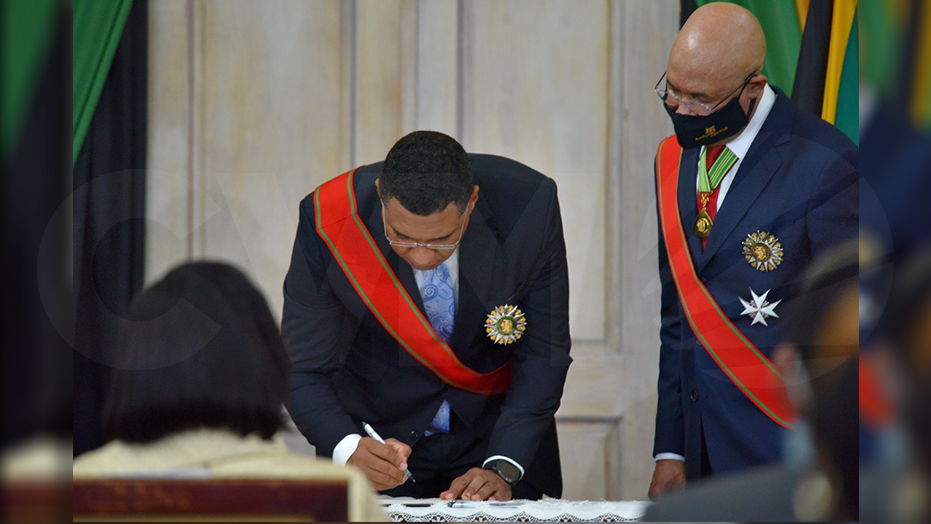

The PNP government in 1974 also formed the Jamaica Movement for the Advancement of Literacy (JAMAL), which administered adult education programs with the goal of involving 100,000 adults a year.
#Jamaica prime minister pension free#
The introduction of universally free secondary education was a major step in removing the institutional barriers to private sector and preferred government jobs that required secondary diplomas. In 1974, Manley proposed free education from primary school to university.

In 1974, the PNP under Manley adopted a political philosophy of Democratic Socialism. Under Manley, Jamaica established a minimum wage for all workers, including domestic workers. In this regard he started a fashion revolution, often preferring the Kariba suit, a type of formal bush-jacket suit with trousers and worn without a shirt and tie. Unlike his father, who had a reputation for being formal and businesslike, the younger Manley moved easily among people of all strata and made Parliament accessible to the people by abolishing the requirement for men to wear jackets and ties to its sittings. Although he was a Jamaican from an elite family, Manley's successful trade union background helped him to maintain a close relationship with the country's poor majority, and he was a dynamic, popular leader.
#Jamaica prime minister pension series#
He instituted a series of socio-economic reforms that produced mixed results. In the 1972 Jamaican general election, Manley defeated the unpopular incumbent Prime Minister, Hugh Shearer of the Jamaica Labour Party, as his People's National Party swept to a landslide victory with 37 of 53 seats. He then served as leader of the Opposition, until his party won in the general elections of 1972. Īfter his father's retirement in 1969, Manley was elected leader of the People's National Party, defeating Vivian Blake. He won election to the Jamaican House of Representatives for the Central Kingston constituency in 1967. However, in 1962, he accepted an appointment to the Senate of the Parliament of Jamaica. When his father was elected premier of Jamaica in 1955, Manley resisted entering politics, not wanting to be seen as capitalizing on his family name. In August 1953, he became a full-time official of that union. At about the same time, he became involved in the trade union movement, becoming a negotiator for the National Workers Union. He graduated in 1949, and returned to Jamaica to serve as an editor and columnist for the newspaper Public Opinion. At the LSE, he was influenced by Fabian socialism and the writings of Harold Laski. In 1945, he enrolled at the London School of Economics. He attended the Antigua State College and then served in the Royal Canadian Air Force during World War II. Michael Manley was the second son of premier Norman Washington Manley and artist Edna Manley.


 0 kommentar(er)
0 kommentar(er)
